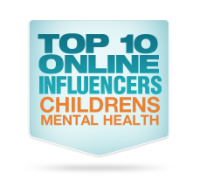 In the third segment in our series for Mental Health Month… Ten things I wish church leaders knew about families and mental illness, we’ll look at a reality most church leaders fail to appreciate… the extent to which families impacted by mental illness desire support from the church.
In the third segment in our series for Mental Health Month… Ten things I wish church leaders knew about families and mental illness, we’ll look at a reality most church leaders fail to appreciate… the extent to which families impacted by mental illness desire support from the church.
Several years ago, I wrote about a significant study from Baylor University examining the effects of mental illness on families within faith communities. There were several eye-opening findings described in the study…
The present study examined the experiences and values of families caring for a mentally ill loved one within the context of a Christian faith community. Participants (n= 5899) in 24 churches representing four Protestant denominations completed a survey describing their family’s stresses, strengths, faith practices, and desires for assistance from the congregation. Results showed mental illness in 27% of families, with those families reporting twice as many stressors on average. In addition, families with mental illness scored lower on measures of family strength and faith practices. Analysis of desires for assistance found that help with mental illness was a priority for those families affected by it, but ignored by others in the congregation. These results suggest that mental illness is not only prevalent in church communities, but is accompanied by significant distress that often goes unnoticed. Partnerships between mental health providers and congregations may help to raise awareness in the church community and simultaneously offer assistance to struggling families.
Here are some of the significant findings…
- Among the adults completing the study, participants from families affected by mental illness were more likely to be younger, female, unmarried and to have been attending their current church for a shorter period of time.
- Members of families affected by mental illness reported praying less consistently and were more likely to report that one or more family members failed to attend church regularly.
- When asked to identify the top six supports the church can offer families from an inventory of 47 items, families affected by mental illness rated support with mental health second out of 47 items while study participants from unaffected families ranked mental health support 42nd out of 47.
The most obvious take-home point from the study seemed to be that families in which someone was struggling with a mental illness (27% of families in this study) were very desirous of support from their local churches, but other members/attendees were oblivious to their needs. The other key point is that the presence of a family member with mental illness appears to be an impediment to church attendance and regular prayer.
There were significant limitations to this study. First, the study instruments were distributed at church. Families who had stopped attending church weren’t included. We don’t know how the impact of mental health differs when the person experiencing the mental health condition is a child as opposed to an adult. There was no attempt to validate the presence of mental illness among family members surveyed or to quantify the differential impact of specific disorders (schizophrenia vs. depression or anxiety). In addition, the study data was obtained from a non-randomized sample.
Nevertheless, the study points out a crying need on the part of families impacted by mental illness for help and support through their local church to facilitate inclusion and spiritual growth.
***********************************************************************************************************
 Key Ministry has assembled resources to help churches more effectively minister to children and adults with ADHD, anxiety disorders, Asperger’s Disorder, Bipolar Disorder, depression and trauma. Please share our resources with any pastors, church staff, volunteers or families looking to learn more about the influence these conditions can exert upon spiritual development in kids, and what churches can do to help!
Key Ministry has assembled resources to help churches more effectively minister to children and adults with ADHD, anxiety disorders, Asperger’s Disorder, Bipolar Disorder, depression and trauma. Please share our resources with any pastors, church staff, volunteers or families looking to learn more about the influence these conditions can exert upon spiritual development in kids, and what churches can do to help!





The conclusions that “families in which someone was struggling with a mental illness (27% of families in this study) were very desirous of support from their local churches, but other members/attendees were oblivious to their needs. The other key point is that the presence of a family member with mental illness appears to be an impediment to church attendance and regular prayer” are not necessarily the correct conclusions to draw from this information. These statistics may also indicate that persons struggling with mental illness are less likely to consistently follow through on behavior which will be helpful, such as prayer and connecting with others in their congregations who might be of help. That’s to be expected…people who are ill often least able to help themselves!
It is certainly true that congregations can always do better at loving people who are struggling with mental illnesses, but I think the information provided here does not warrant the looked-for conclusions.
LikeLike